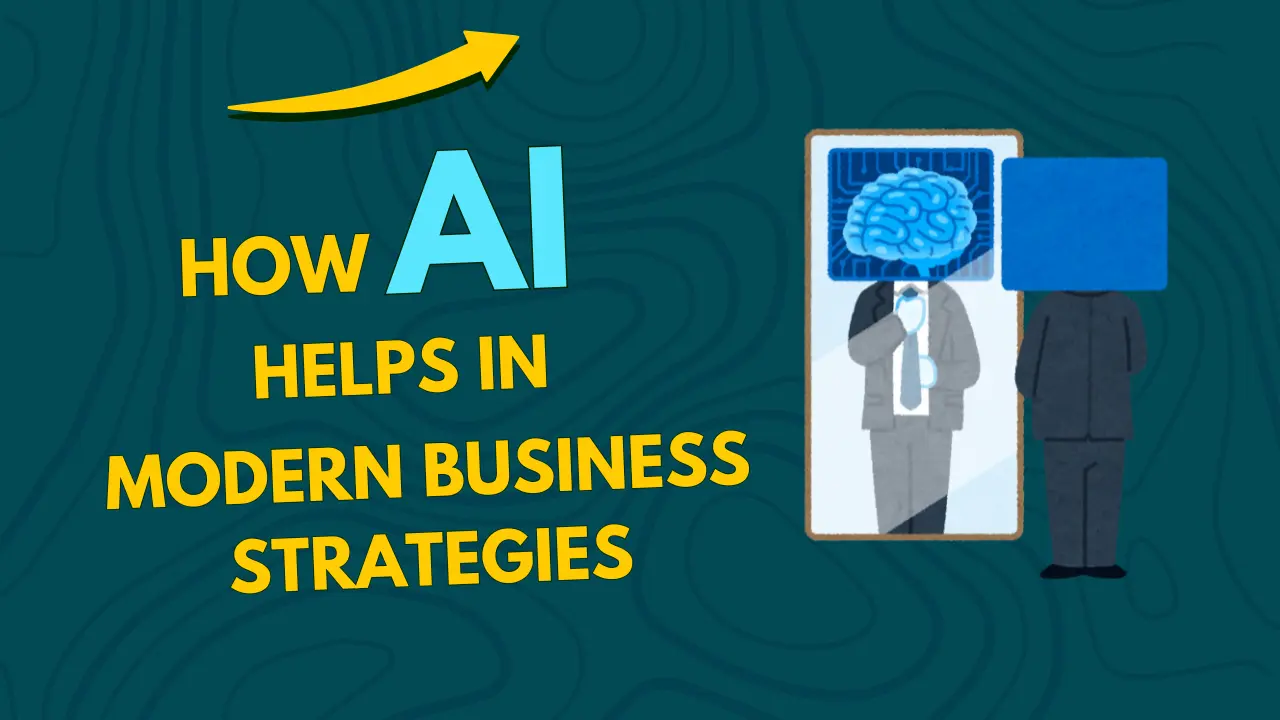How AI Helps in Modern Business Strategies
In today’s rapidly evolving digital landscape, businesses are continuously adapting to leverage new technologies. Among these, artificial intelligence (AI) stands out as a transformative force. From enhancing decision-making processes to automating routine tasks, AI has revolutionized how companies operate. This article explores how AI helps in modern business strategies, providing insights into its diverse applications and benefits.
Enhanced Decision-Making Through Data Insights
One of the most significant ways AI helps in modern business is by enabling data-driven decision-making. Traditional business strategies often relied on intuition and historical data, but AI brings a new dimension by processing vast amounts of data in real time. Through advanced analytics and machine learning algorithms, AI identifies patterns, predicts trends, and provides actionable insights.
For instance, in retail, AI analyzes customer preferences and buying behavior to optimize inventory management and personalize marketing campaigns. Similarly, in finance, AI-driven analytics forecast market trends, allowing businesses to make informed investment decisions.
Automating Routine Tasks
AI has redefined workplace efficiency by automating repetitive and time-consuming tasks. By integrating AI-powered tools, businesses can save time and resources, allowing employees to focus on higher-value activities.
Examples of automation include chatbots for customer service, robotic process automation (RPA) for handling administrative tasks, and AI-driven supply chain management systems. These innovations reduce human error, increase productivity, and enhance overall operational efficiency.
Personalized Customer Experiences
Customer experience is a cornerstone of modern business success, and AI plays a pivotal role in creating personalized interactions. By analyzing customer data, AI tailors recommendations, content, and services to individual preferences. This level of personalization enhances customer satisfaction and loyalty.
E-commerce platforms like Amazon and streaming services like Netflix excel in using AI to provide personalized experiences. Their recommendation engines analyze user behavior to suggest products or content, significantly improving user engagement.
Optimizing Marketing Strategies
AI-powered tools have revolutionized marketing by enabling precise targeting and performance tracking. Businesses can now create data-driven campaigns that reach the right audience at the right time. AI helps in modern business marketing strategies by automating tasks such as:
- Segmenting audiences based on behavior and demographics.
- Generating insights from social media interactions.
- Optimizing ad placement and budget allocation.
Tools like Google Ads and Facebook AI allow marketers to analyze campaign performance and refine their strategies in real time, ensuring maximum ROI.
Strengthening Cybersecurity
With the rise of digital transformation, cybersecurity has become a critical concern for businesses. AI enhances security measures by detecting anomalies, predicting potential threats, and responding to cyberattacks faster than traditional methods.
For instance, AI-powered systems monitor network traffic to identify suspicious activities and alert security teams. Companies like IBM and Palo Alto Networks use AI to develop robust cybersecurity solutions that protect sensitive data and maintain customer trust.
Revolutionizing Human Resource Management
Human resource departments are leveraging AI to streamline recruitment, employee engagement, and performance evaluation. AI-powered tools assist in:
- Screening resumes and identifying qualified candidates.
- Conducting virtual interviews through AI-driven chatbots.
- Analyzing employee performance metrics to provide constructive feedback.
These applications not only save time but also ensure unbiased and efficient HR processes.
Driving Innovation and Product Development
Innovation is at the heart of business growth, and AI accelerates this process by providing valuable insights during product development. AI-driven simulations and predictive modeling allow companies to test new ideas and refine products before launch.
For example, automotive companies use AI to design safer and more efficient vehicles, while pharmaceutical firms employ AI in drug discovery and clinical trials, significantly reducing development timelines.
Enhancing Supply Chain Management
Supply chain management is a complex process that involves coordinating multiple elements, from procurement to delivery. AI optimizes this process by:
- Predicting demand fluctuations.
- Managing inventory levels efficiently.
- Identifying bottlenecks and suggesting solutions.
Companies like DHL and Amazon use AI to streamline their logistics operations, ensuring timely deliveries and cost savings.
AI in Small and Medium Enterprises (SMEs)
AI is no longer a tool reserved for large corporations. Small and medium enterprises (SMEs) are also adopting AI to gain a competitive edge. Affordable AI solutions tailored for SMEs help them automate processes, enhance customer engagement, and analyze market trends without requiring substantial investments.
Challenges and Ethical Considerations
While AI offers immense benefits, it also comes with challenges. Businesses must address issues such as data privacy, algorithmic bias, and job displacement. Ethical AI practices, transparency, and continuous monitoring are essential to ensure that AI-driven strategies align with societal values and regulations.
Final Thought
In conclusion, AI is a game-changer in the business world. By enabling data-driven decisions, automating tasks, personalizing customer experiences, and enhancing operational efficiency, AI has become integral to modern business strategies. As technology evolves, businesses that embrace AI will be better positioned to adapt to market changes and maintain a competitive edge.
Read More The Future of AI Predictions for the Next Decade


1 Comment